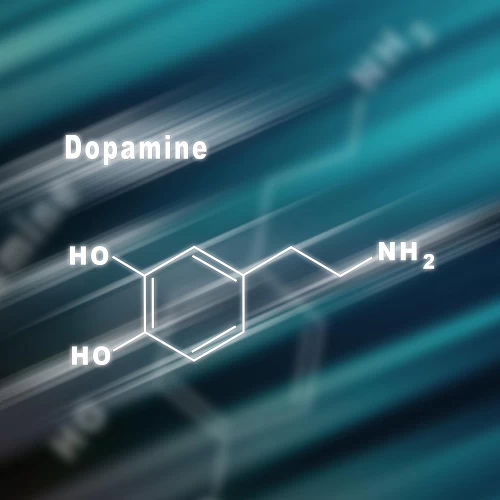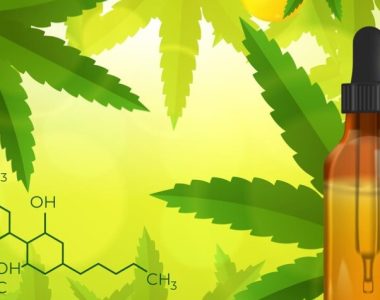Are you curious about The Difference Between Delta 8 THC vs Delta 9 THC vs Delta 10 THC? Delta 8, Delta 9, and Delta 10 are variations of THC that have been gaining attention in recent years. While they may sound similar, these compounds have distinct differences on the body and mind. In this article, we will delve into what sets these three types of THC apart so you can better understand which one might be best for you. Get ready to discover the unique properties and benefits of each form of THC!
What is Delta 8 THC?
Delta 8 THC, known scientifically as delta-8-tetrahydrocannabinol, is a minor cannabinoid. It occurs naturally in the hemp and cannabis plants. This compound has gained attention for its unique properties and potential health benefits.
Unlike Delta 9 THC, which is renowned for its psychoactive effects, Delta 8 THC provides a milder high that many users find more manageable. It’s worth noting that while it may be less intense than traditional THC, Delta 8 still possesses some level of psychotropic activity.
Research into this lesser-known compound suggests it may offer a range of therapeutic benefits, such as pain relief, reducing inflammation, and a sleep aid. Additionally, studies have shown that Delta 8 THC can help stimulate appetite and reduce nausea in patients undergoing chemotherapy treatment.
Delta 8 THC can be consumed via various methods, such as smoking or vaping flower strains with high levels of this cannabinoid or consuming edibles infused with an extract containing Delta 8. However, it’s crucial to note that the legality of Delta 8 varies by state, so do your research beforehand if you’re interested in trying it out!
How Is Delta 8 THC Made?
Delta 8 THC is a psychoactive property that occurs naturally in cannabis and hemp plants. However, it is only found in trace amounts, making it difficult to extract and isolate.
To make Delta 8 THC, manufacturers typically begin with CBD oil or hemp-derived distillate. The first step involves converting the CBD into Delta 8 THC through a chemical reaction called an isomerization process.
Once they have obtained Delta 8 THC, they use another chemical process to convert it into Delta 8 THC. This second conversion step involves selectively reducing the double bond on the ninth carbon chain of the molecule using specialized catalysts.
The resulting product is a clear liquid or semi-solid substance that can be used for various purposes, such as creating edibles, tinctures, and vape cartridges.
It’s worth noting that producing high-quality Delta 8 THC requires sophisticated laboratory equipment and expertise to ensure purity and safety. Therefore, consumers should always purchase products from reputable brands that follow strict manufacturing protocols.
What is Delta 9 THC?
Delta 9 THC is one of the many compounds found in cannabis, and it’s the primary psychoactive compound responsible for the “high” associated with consuming marijuana. This cannabinoid binds to receptors in the brain and alters our perception of pain, mood, and appetite.
Unlike CBD (cannabidiol), which has gained popularity due to its non-psychoactive properties, Delta 9 THC works by bonding with CB1 receptors in your brain. When this bond forms, it triggers a dopamine release, creating feelings of euphoria or relaxation.
It’s important to note that different strains have varying Delta 9 THC content levels. Some strains may contain more than others; therefore, users should be aware before trying any new strain.
Understanding what Delta 9 THC is and how it affects your body can help users make informed decisions about their consumption preferences while enjoying cannabis responsibly.
How Is Delta 9 THC Made?
Delta 9 THC is the primary psychoactive compound found in cannabis plants. It is synthesized from cannabigerol (CBG), a non-psychoactive cannabinoid. CBG undergoes enzymatic reactions to produce various cannabinoids, including Delta 9 THC.
The process of synthesizing Delta 9 THC involves exposing CBG to heat and light through a process called decarboxylation. This process removes the carboxyl group from the molecule, converting it into an active form that can bind with receptors in the body’s endocannabinoid system.
Once decarboxylation occurs, Delta 9 THC can be extracted from the plant material using various methods such as solvent extraction or CO2 extraction. The extract is then purified through further processing steps to remove impurities and achieve higher concentrations of Delta 9 THC.
It’s important to note that while Delta 9 THC has potent psychoactive effects, it also has potential therapeutic benefits when used appropriately under medical supervision. As such, its production must follow strict regulations and guidelines to ensure purity and safety for consumers.
Understanding how Delta 9 THC is made provides valuable insight into why it’s essential to use high-quality products derived from reputable sources for both recreational and medicinal purposes.
What Is Delta 10 THC
Delta 10 THC, or Delta-10-tetrahydrocannabinol, is a minor cannabinoid found in cannabis. It’s chemically similar to Delta-9 THC and shares many of its effects on the body. However, there are some critical differences between the two cannabinoids that make Delta 10 THC a unique option for those looking for an alternative to traditional marijuana.
The molecular structure of Delta 10 THC differs from that of other cannabinoids, which means it has distinct properties and benefits. One significant difference is the uplifting effects rather than sedatives, making it a popular choice among people who want to avoid feeling drowsy or “stoned.”
Another exciting aspect of Delta 10 THC is its potential therapeutic applications. Some studies have suggested that it could be beneficial in treating anxiety, depression, and even cancer-related symptoms.
While still relatively unknown compared to other cannabinoids like CBD and Delta-9 THC, Delta-10 THC shows promise as a viable option for those seeking natural remedies for various conditions. As research into this compound grows, we can only expect more revelations about what makes it unique.
How Is Delta 10 THC Made?
To create Delta 10 THC, hemp-derived CBD isolate or distillate undergoes an intensive chemical conversion process. That involves using specialized equipment to refine the starting material into a more concentrated form of Delta 9 THC. Next, the refined product is further purified through fractional distillation and isolation techniques until it yields pure Delta 10 THC.
One method for creating Delta 10 THC involves exposing CBD isolate or distillate to specific catalysts and solvents under precise conditions. These conditions cause molecular rearrangements that result in the formation of Delta 10 THC.
Another method involves converting CBG (cannabigerol) into Delta-10 by treating it with various chemicals, such as acids or bases, at elevated temperatures and pressures.
While these processes may seem complex, decarboxylation is necessary to produce high-quality Delta 10 THC products safely and efficiently. When done correctly, this type of production can yield potent extracts that offer unique effects compared to other cannabinoids like CBD or even delta-THC, like Delta 8 THC.
Explain Delta 8 THC vs Delta 9 THC vs Delta 10 THC
When it comes to the chemical structure of tetrahydrocannabinol (THC), the difference between Delta 8 THC vs Delta 9 THC vs Delta 10 THC lies in the location of a double bond on their carbon chains.
Specifically, Delta-8’s double bond is located on its eighth carbon chain. At the same time, Delta-9 and Delta-10 have double bonds on the ninth and tenth carbon chains, respectively. This subtle variation has significant implications for each compound’s psychoactive effects as they interact with cannabinoid receptors differently.
The position of this crucial double bond determines how well these cannabinoids bind to CB1 receptors found primarily in the brain. Depending on which one is consumed, they lead to variations in potency, onset time, duration of action, and overall therapeutic potential.
As such, understanding these differences could significantly impact our ability to develop targeted treatments for various health conditions that can benefit from cannabis-based therapies.
Recreational Uses Of Delta 8 THC vs Delta 9 THC vs Delta 10 THC
Let’s talk about Delta 8 THC vs Delta 9 THC vs Delta 10 THC for recreational use. These three cannabinoids are all unique in their own way and can offer different effects for your recreational use.
Delta 8 THC is known for its warm psychoactive effects, making it an excellent alternative for relaxing without feeling too loaded.
On the other hand, Delta 9 THC is more potent and can provide a stronger high that some users prefer.
But have you heard of the newest addition to the family? Enter Delta 10 THC! This newcomer is gaining popularity among cannabis enthusiasts due to its energizing and uplifting effects, making it perfect for daytime activities like hiking or playing sports.
Whether you’re looking for a chill evening at home or an adventure-filled day outside, there’s a delta cannabinoid out there waiting just for you! This why you need to know the difference between Delta 8 THC vs Delta 9 THC vs Delta 10 THC.
Is using Delta 8 THC, Delta 9 THC, or Delta 10 THC worth the investment?
When it comes to deciding whether investing in Delta 8 thc, Delta 9 thc, or Delta 10 thc is worth it, there are a few factors to consider. Firstly, each of these compounds has its own unique effects on the body and mind. Delta 8 thc is known for creating a mild high with less anxiety and paranoia than traditional marijuana products.
On the other hand, Delta 9 THC offers a more substantial psychoactive effect that can be both relaxing and euphoric but may also increase anxiety for some users.
Some users may find Delta 10 THC worth the cost for its novel effects. Others may prefer to stick with more well-established cannabinoids until more research is available. Ultimately, whether or not Delta 10 THC is worth the price will depend on each person’s priorities and willingness to experiment with newer products in the cannabis space.
Ultimately whether investing in any THC product is worth it depends on individual needs and preferences and knowledge about laws regulating their sale and use in your area.
It’s always recommended to consult with medical professionals before trying new substances, especially if you have pre-existing health conditions or are taking prescription medication.
How To Buy Delta 8 THC, Delta 9 THC or Delta 10 THC
- Decide what you want to consume your Delta 8, 9 or 10 THC: flower, pre-roll, joint, blunt, edible, etc.
- Select your preferred method of consumption: vape, smoke, or edible.
- Purchase your Delta 8 THC product from a reputable source like Sweet Southern Trading.
Let’s wrap it up
We hope this article has offered you a better understanding of The Difference Between Delta 8 THC vs Delta 9 THC vs Delta 10 THC. Each of these compounds offers unique properties and effects, so it is essential to understand their differences before you decide what product to use.
Also, read up on the difference between live resin, live rosin, and diamonds!
Whether your goal is to experience the therapeutic benefits of Delta 8, find a mild high from Delta 10, or have a great feeling with Delta 9, each variety can help bolster your wellness regime.
Be sure to do more research and talk with your healthcare provider before trying out any of these cannabinoids for yourself.






